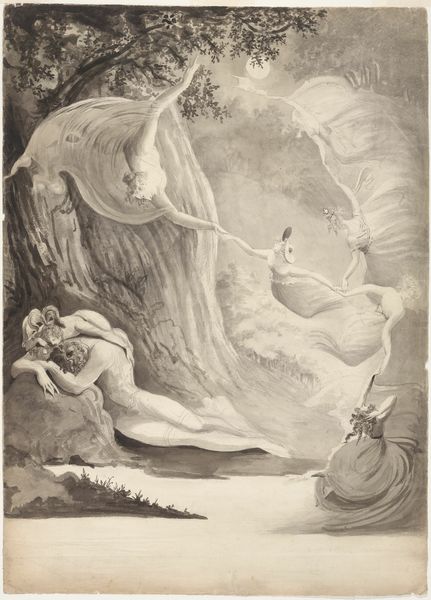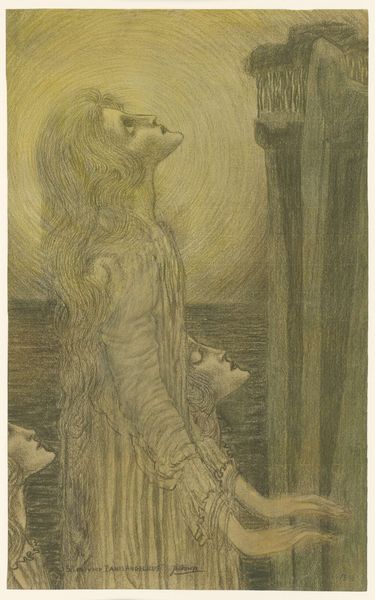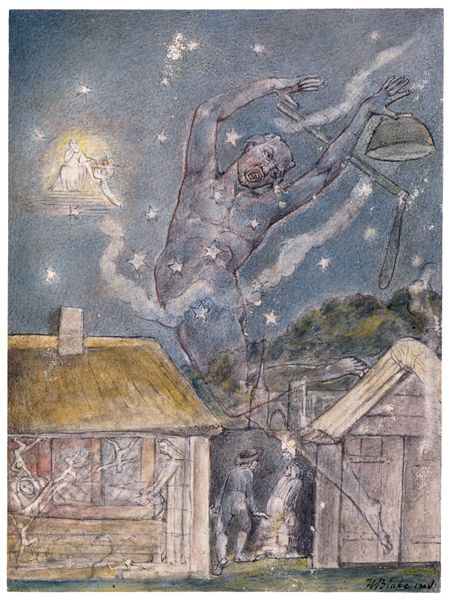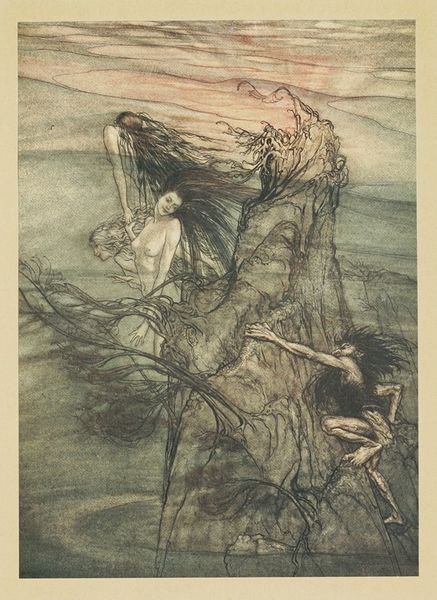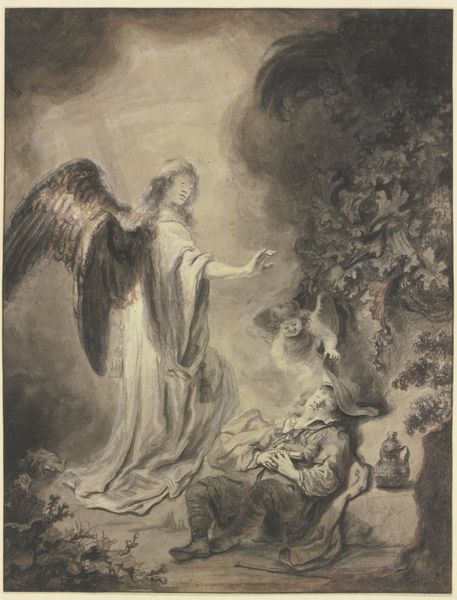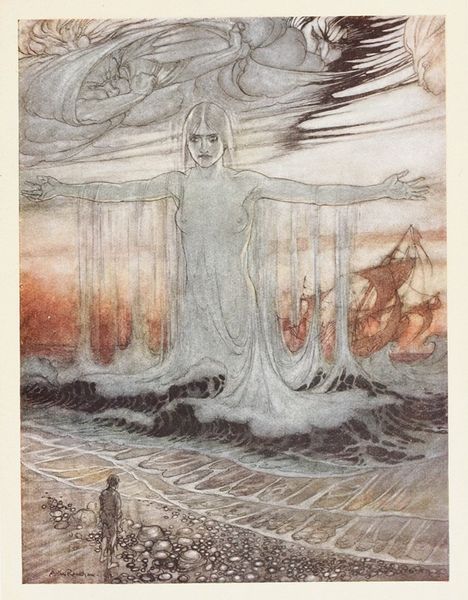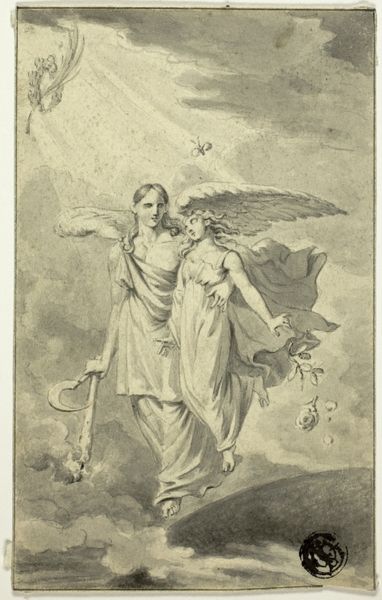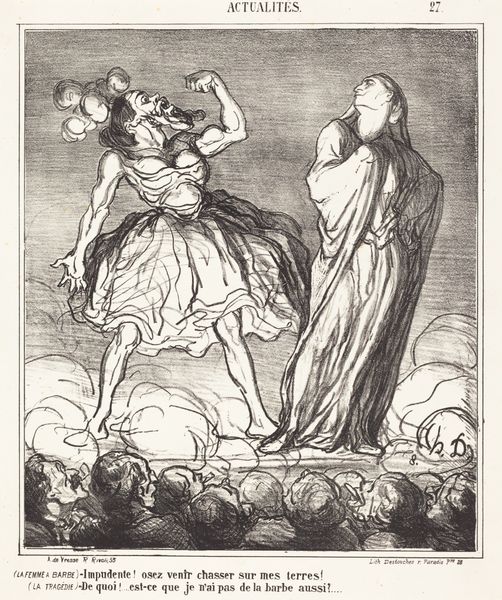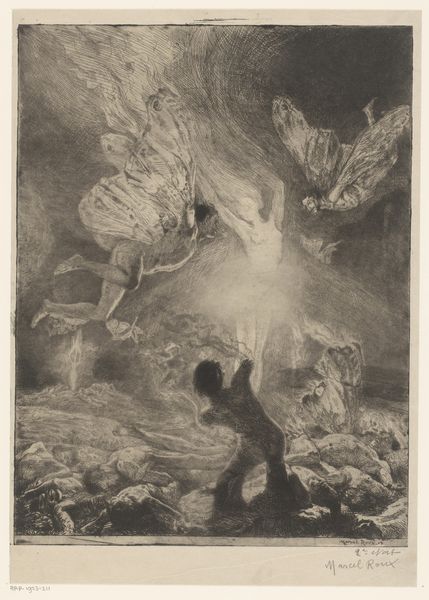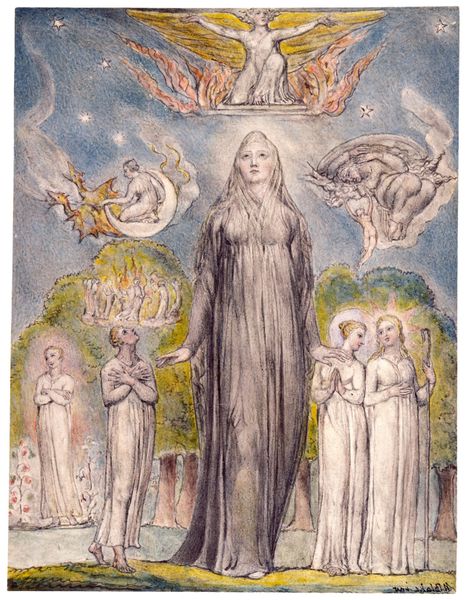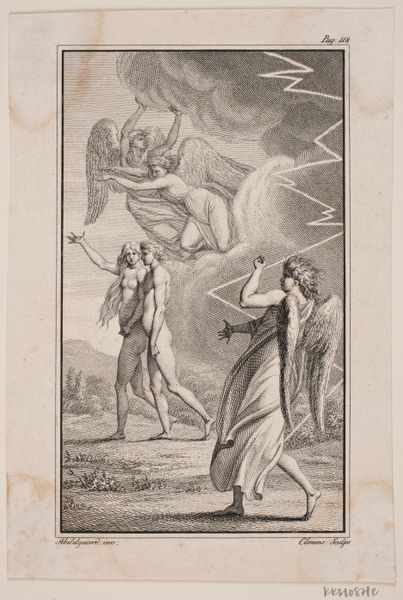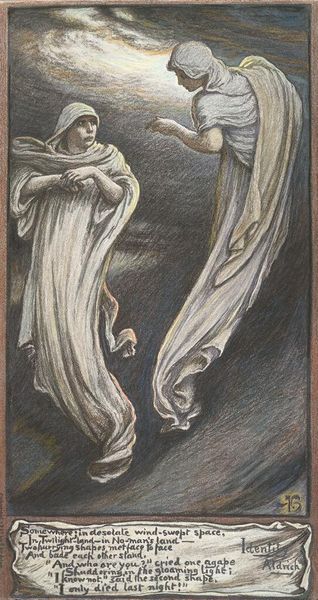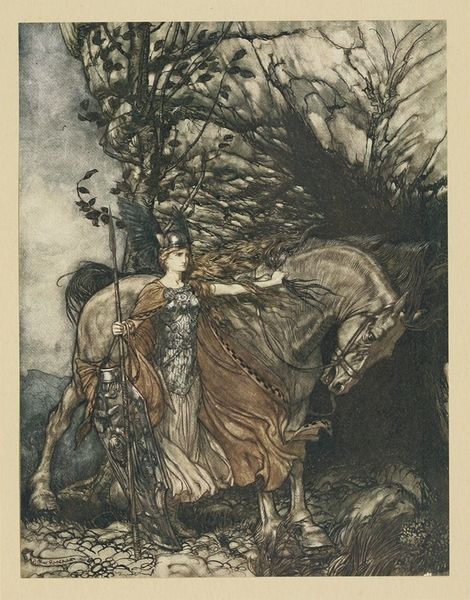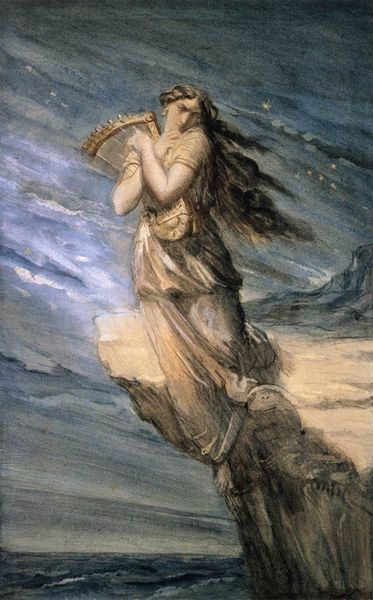
drawing, watercolor, pen
drawing
landscape
figuration
oil painting
watercolor
romanticism
pen
watercolour illustration
history-painting
watercolor
Copyright: Public domain
William Blake created this watercolor, pen, and ink work called, “The Wandering Moon,” during a time of great political and social change. The late 18th and early 19th centuries were marked by revolutions and the rise of Romanticism, which emphasized emotion and individualism. Here, a figure representing the moon floats ethereally above a landscape, observed by a man in what appears to be clerical dress. The moon, traditionally associated with femininity, is depicted as an active, almost ecstatic, figure. Blake often challenged the rigid social and religious norms of his time, which restricted women’s roles. Instead, he favored a more liberated depiction of female identity. "The imagination is not a state: it is human existence itself," Blake said, reflecting his belief in the power of visionary experience. This artwork invites us to consider the ways in which societal expectations can either confine or liberate the human spirit. Through its dreamlike imagery and symbolic figures, it resonates with a longing for freedom and self-expression.
Comments
No comments
Be the first to comment and join the conversation on the ultimate creative platform.
